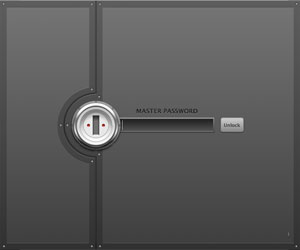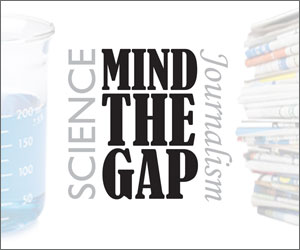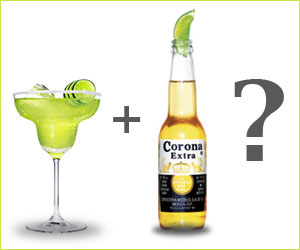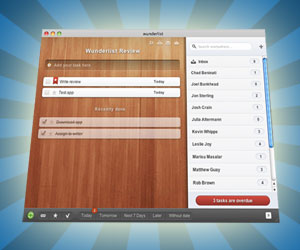 At a regional Post-Doc Association meeting last week a speaker announced that this is an amazing time to be in science- a terrible time to try to get into academia- but an amazing time for science. So, this month for Sensational Science I’d like to do a little something different. Instead of pointing out the comical headlines (“Super-Small Transistor Created: Artificial Atom Powered by Single Electrons” – what, exactly, is an “artificial atom?”) I wanted to draw your attention to a handful of really interesting – if not sensational – true, accurate, science discoveries.
At a regional Post-Doc Association meeting last week a speaker announced that this is an amazing time to be in science- a terrible time to try to get into academia- but an amazing time for science. So, this month for Sensational Science I’d like to do a little something different. Instead of pointing out the comical headlines (“Super-Small Transistor Created: Artificial Atom Powered by Single Electrons” – what, exactly, is an “artificial atom?”) I wanted to draw your attention to a handful of really interesting – if not sensational – true, accurate, science discoveries.
Sensational Science: Why It’s a Great Time to be in Science
by
Grant Writing: Is “Grant Creep” Choking Out PIs?
by
 Regardless of the field, most projects struggle to manage a phenomenon known as “scope creep”, where a defined set of tasks slowly expands – one seemingly-miniscule step at a time – into something much larger than originally planned. It often happens innocently enough as in the case of a home repair, “Since you’re planting that bed of flowers anyway, maybe we could just add a small bush on the side… and another row of flowers in the back… and another small bed on the side of the house… and…” Before you know it a small, self-contained project has tripled in size and cost in the blink of an eye.
Regardless of the field, most projects struggle to manage a phenomenon known as “scope creep”, where a defined set of tasks slowly expands – one seemingly-miniscule step at a time – into something much larger than originally planned. It often happens innocently enough as in the case of a home repair, “Since you’re planting that bed of flowers anyway, maybe we could just add a small bush on the side… and another row of flowers in the back… and another small bed on the side of the house… and…” Before you know it a small, self-contained project has tripled in size and cost in the blink of an eye.
Repetitive Strain Injury: The Hidden Lab Hazard
by
What was the most difficult part of *your* graduate school career and how did you overcome it?
– Sabine, graduate student
Can Positive Thinking Affect Your Experiments?
by
 Scientists are a notoriously critical bunch. We have to be, it’s part of our job. Yet, our dependence on “seeing the data” often makes us among the more skeptical members of society, as we have a tendency to dismiss that which cannot be explained through a logical mechanism. But are these instincts actually preventing us from becoming better scientists?
Scientists are a notoriously critical bunch. We have to be, it’s part of our job. Yet, our dependence on “seeing the data” often makes us among the more skeptical members of society, as we have a tendency to dismiss that which cannot be explained through a logical mechanism. But are these instincts actually preventing us from becoming better scientists?
The Only Internet Password Protection You Need
by
 With “Twitter hacking” in the news recently, it’s a good time to reflect on a key question regarding our own computer security: How comfortable are you with your current Internet password protection strategy? Does it cause you undue stress to even think about how vulnerable you are to hackers who may steal your passwords and break into every aspect of your life?
With “Twitter hacking” in the news recently, it’s a good time to reflect on a key question regarding our own computer security: How comfortable are you with your current Internet password protection strategy? Does it cause you undue stress to even think about how vulnerable you are to hackers who may steal your passwords and break into every aspect of your life?
Another One Bites the Dust: Rinderpest Eradicated
by
 Many of the largest threats to human health are caused by microscopic viruses. Thousands of people die each year from these vicious and diverse entities. Some notable examples include HIV, influenza, Ebola, West Nile…the list goes on. But viruses can also inflict misery on human beings by attacking the animals we farm for food.
Many of the largest threats to human health are caused by microscopic viruses. Thousands of people die each year from these vicious and diverse entities. Some notable examples include HIV, influenza, Ebola, West Nile…the list goes on. But viruses can also inflict misery on human beings by attacking the animals we farm for food.
Lab Funding Outlook: Time to Move Forward or Pull the Ripcord?
by
 Last week’s poll on the future of lab funding was less than positive. In fact, the optimists must have been busy congratulating eachother on future successes because it seems they missed the poll altogether. In truth, a negative forecast is to be expected from time to time in a naturally cyclic economy, so the results themselves should not be cause for alarm. However, responsible scientists – looking at the data – may conclude otherwise.
Last week’s poll on the future of lab funding was less than positive. In fact, the optimists must have been busy congratulating eachother on future successes because it seems they missed the poll altogether. In truth, a negative forecast is to be expected from time to time in a naturally cyclic economy, so the results themselves should not be cause for alarm. However, responsible scientists – looking at the data – may conclude otherwise.
Wunderlist Task Management: Give Your Brain a Present
by
Take My Figure Off of Your Poster…Or Else.
by
A labmate is attending a conference and I just found out that they’ve included one of my main figures in their poster, without my permission. There is a long history between us, which is why they didn’t ask and our PI is not doing anything to resolve the situation. Can I make them remove my figure from the poster?
-Anonymous, grad student
Robin’s ‘Rita: A Bubbly Twist on a Flat Classic
by
 We’ve all heard the old saying “Liquor then beer, you’re in the clear; beer then liquor, never sicker.” But what about beer in liquor? Turns out, the answer is “happy quicker!” This weekend the summer season officially kicks off and what better excuse to take a break from the bench than to celebrate with a summer classic – the margarita.
We’ve all heard the old saying “Liquor then beer, you’re in the clear; beer then liquor, never sicker.” But what about beer in liquor? Turns out, the answer is “happy quicker!” This weekend the summer season officially kicks off and what better excuse to take a break from the bench than to celebrate with a summer classic – the margarita.




